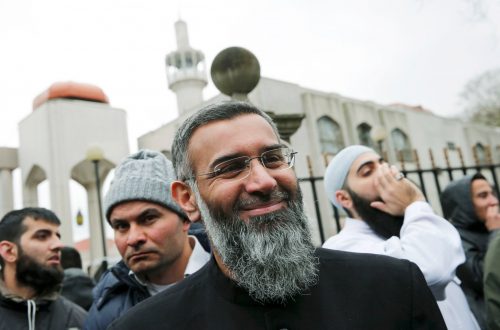I first joined Amnesty when I was at school – as a sixth former I chose to give a talk about it for a public speaking competition because I felt strongly about Amnesty’s work. I let my membership lapse as a disorganised student but rejoined about 15 years ago. As most readers will know, AI has attracted a good deal of controversy recently, and HP has covered many stories which we felt reflected badly on Amnesty, and compromised its mission.
The single most widely publicised incident was the Begg/Sahgal saga. I thought the connection with CagePrisoners via Begg was a cause for real concern, joined the Facebook group, and signed the petition for Sahgal to be reinstated. Yet I also had misgivings about the tone taken by some of Sahgal’s supporters, felt the links with CP were sometimes rather overstated, and felt unsure whether this incident reflected any lessening of Amnesty’s commitment to women’s rights. And I thought this was not unamusing. I didn’t necessarily reach precisely the same conclusions, but I felt Sunny Hundal was at least asking most of the right questions here rather than just starting with the answer he wanted and working backwards.
Amnesty responded to the affair very badly. This response, from Widney Brown, particularly the tortuous use of the word ‘other’ towards the end, was particularly feeble. Cordone’s response seemed far more intelligent and direct – yet he slipped in that strange reference to ‘defensive jihad’. (I would have responded with similar alarm to an invocation of a ‘crusade’ or a ‘counter-jihad’). It almost felt as though he was baiting his readers, wanting to put people on edge.
In an article published last August Salil Shetty, now Secretary General of AI, insultingly distorted the concerns of Gita Sahgal
“If a woman is dying I don’t first ask what are your views about the Taliban,” he said. “If we start choosing which prisoner of conscience we support, depending on their views about the world as a whole, that goes against the idea that a right to life is a fundamental human right.”
The pay controversy was another nail in the coffin of AI’s credibility, although the problem seems to have been mismanagement rather than ideology here of course.
Other recent concerns have focused on the longstanding complaint that AI’s focus on Israel is unfair. Again, I think it’s important to get these stories in perspective. Amnesty is a very large organisation and, like all individuals and organisations, should be forgiven the occasional error of judgement. But these small incidents have a drip, drip, drip, and finally drop effect.
It seems clear now that this MEMO and PSC event, ‘Complicity in Oppression: Do the Media aid Israel’, is going ahead, so I have cancelled my payments. I found it difficult to bring myself to leave Amnesty. I had been a member for a long time, and I still think, on balance, it does a lot of good. Some of the criticisms I’ve read of it are absurd hyperbole. But just because its overall impact could still be said to be positive, that doesn’t mean it’s right to remain a member if it refuses to disassociate itself clearly and unequivocally from racists and extremists – which it could do quite easily while still taking a rigorous and firm line on all human rights abuses. Also, a few people leaving Amnesty isn’t going to have much impact on the valuable work it does – but just might encourage a bit of self-reflection. Though I’m not holding my breath.


